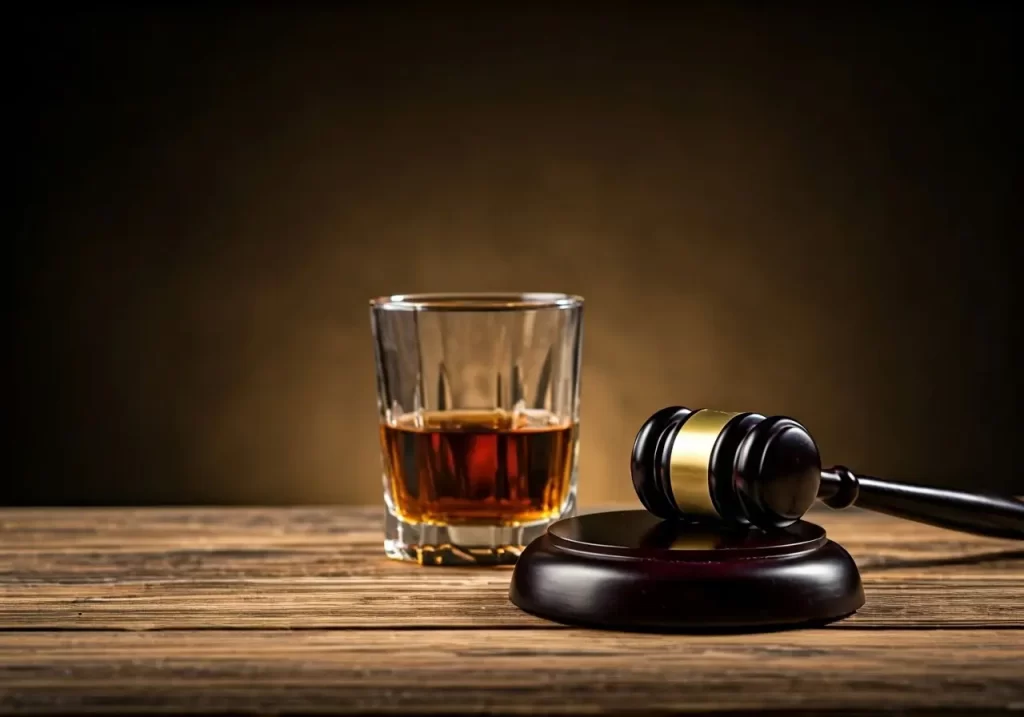Facing a DUI charge can be a daunting and stressful experience. Knowing the right steps to take can make a significant difference in the outcome. In this blog, we’ll share some essential legal advice every driver should know, so you’re better prepared and informed.
1. Understanding Impairment Detection
Before law enforcement can administer a DUI test, officers rely on cues of impairment. These cues often include erratic driving, unusual behavior, or visible intoxication. It’s important to understand these signals as knowing them can empower you to maintain composure during a traffic stop. Unbeknownst to many, even mundane actions can be misinterpreted as impairment. Simple actions like fumbling through documents or slurred speech due to anxiety can sometimes be perceived negatively. Thus, staying calm and organized is crucial. During the stop, officers may ask questions designed to evaluate sobriety levels. Understanding this process equips you to handle the situation adeptly, ensuring you are aware of your rights and obligations.
2. Field Sobriety Tests Explained
Field sobriety tests are commonly requested when a driver is suspected of DUI. These tests assess balance, coordination, and cognitive ability, and include methods like the walk-and-turn or one-leg stand. While they might seem straightforward, these tests are subjective and heavily reliant on the officer’s interpretation. Factors such as weather conditions, footwear, or even medical conditions can skew results. It’s important to remember that you are not legally obligated to perform these tests, and refusal will typically lead to arrest, given the circumstances. However, in some cases, the tests and their results can be challenged later with the help of a defense attorney, who can argue their validity in court. Learn more about your legal rights during a DUI stop.
In light of this, understanding the nuances of these tests is beneficial. Awareness can not only prepare you for what’s to come during a stop, but also provide you with insight into potential defenses. Your DUI attorney will evaluate every detail, including whether the tests were properly administered. This legal angle is vital when aiming to challenge field sobriety test findings, contributing to a more formidable defense strategy.
3. The Role of Portable Breathalyzers
Portable breathalyzers, often seen as impartial technology, play a critical role in many DUI stops. However, their results aren’t foolproof. These devices estimate blood alcohol content based on breath samples, which can be influenced by various factors such as diet, medication, and hygienic products like mouthwash. It’s essential to understand both the mechanics and limitations of breathalyzers. If you suspect your reading may have been skewed, it’s important to communicate this to your attorney, who can assess the credibility of the device used. Interestingly, breathalyzers require regular maintenance and calibration to provide accurate results. Without these checks, readings may prove unreliable in court. Learn more about the importance of questioning breathalyzer accuracy.
4. Blood Tests Versus Breath Tests
When confronted with a DUI stop, the choice between a blood test and a breath test may arise. While breath tests are more common due to convenience, blood tests tend to be more accurate, as they measure the actual amount of alcohol in the bloodstream. This makes them less susceptible to the inaccuracies plaguing breath tests, though they require medical personnel and can be more invasive. Each type of test comes with its own set of legal challenges and defenses. A lawyer’s expertise can guide you in understanding the implications of each option and help contest any unfavorable outcomes. Strategically opting for a blood test, especially if you believe you are below the legal limit, might be advantageous in certain circumstances.
It’s critical to also understand the legal context and time frame within which these tests must be administered to ensure legitimacy. Delays can lead to discrepancies in blood alcohol content and affect the evidentiary value. Your defense attorney can use these factors to discredit any results obtained through improper testing methods, safeguarding your legal standing.
5. Refusing Chemical Testing Consequences
Refusing a chemical test during a DUI stop is a legal option, though not without significant consequences. In many states, including New Jersey, refusal can lead to automatic license suspension and the installation of an ignition interlock device. It’s crucial to weigh the consequences before deciding not to comply. Despite these penalties, refusing a test might sometimes seem beneficial, especially if you believe sobriety levels could be contested lessening the odds of a conviction. Nonetheless, it’s vital to consult with a legal professional prior to refusing, as their advice is tailored to specific circumstances of your case. Our firm offers comprehensive legal consultation services to help you navigate these tough decisions.
6. Legal Implications of DUI Charges
A DUI conviction carries far-reaching implications that extend beyond just fines and potential jail time. Besides the obvious impact on driving privileges, there are financial consequences such as increased insurance premiums and potential loss of employment, particularly in positions requiring driving or sensitive roles. The stigma of a DUI conviction can also affect your social and professional relationships. Understanding these implications highlights the importance of vigorous defense efforts. It may encourage alternative sentencing arrangements that focus on rehabilitation rather than punishment, such as counseling or interlock programs. Proactive legal advice can be invaluable in mitigating these effects, ensuring your record and reputation are protected. Our criminal defense team is committed to helping you navigate through these challenges.
7. The Importance of a Legal Consultation
In the face of a DUI charge, consulting with an experienced DUI attorney is crucial. A lawyer can provide a comprehensive review of your case, helping you to understand your rights and the legal procedures involved. Their knowledge of DUI law and the specific jurisdictional nuances can significantly skew the trajectory of your case. By thoroughly examining the evidence and identifying any procedural missteps, they create a strategy aimed at achieving the best possible outcome. Conducting a legal consultation early on can mitigate stress and provide clarity, making it an indispensable part of tackling a DUI charge. Our attorneys at South Jersey DUI are poised to assist in guiding you through this challenging process.
8. Seeking Alternative Sentencing Options
The concept of alternative sentencing provides hope for those facing a DUI conviction. With the right advocacy, it is possible to secure options such as alcohol education programs or community service instead of incarceration. These alternatives are not only more rehabilitative but also less disruptive to personal and professional lives. To pursue these options, a proactive stance is required, often led by a dedicated attorney who understands the ins and outs of the legal system. Convincing the court to opt for alternatives hinges on presenting a solid case highlighting commitment to change and responsibility. Discussing these options with your attorney can unveil paths that might lead to minimal disruption, aiding both in recovery and in maintaining societal standing.
9. Challenging Breathalyzer Accuracy
While breathalyzer tests play a pivotal role in most DUI cases, their results aren’t always infallible. Factors such as improper calibration, operator errors, and even health conditions can lead to inaccuracies in the readings. Your attorney can further investigate and potentially contest the reliability of breathalyzer results in court. By requesting maintenance logs and examining the device’s testing history, discrepancies may be uncovered that could weaken the prosecution’s evidence against you. Understanding the technicalities behind these devices arms you with the knowledge needed to challenge their findings. It underscores the importance of a precise defense strategy, especially when improperly acquired evidence can unduly compromise your legal position.
10. The Value of Expert Witnesses
An expert witness can be a game-changer in your DUI case. These professionals provide invaluable testimony by scrutinizing test results, alcohol pharmacokinetics, and other critical components. Their objective analysis can challenge evidence presented by the prosecution, often casting doubt on the reliability of methods used to secure a conviction. From forensic toxicologists to former law enforcement officers familiar with DUI procedures, the spectrum of expert witnesses is diverse. Their expertise grounds complex scientific data into digestible testimony cross-examined in court. Partnering with an attorney knowledgeable in leveraging such witnesses can be instrumental in bolstering your defense.
11. Driving Privilege Considerations
A DUI charge directly threatens your driving privileges, often leading to temporary suspension or even revocation of your license. The impact extends to personal freedom and employment for those who rely on driving as part of their profession. Reinstatement procedures, often considered arduous, must be navigated carefully. Understanding these protocols and engaging in them proactively ensures smoother transitions back to driving status. Your attorney can provide guidance on fulfilling court requirements, addressing any mandates such as interlock devices or community service, and advocating for hardships that might expedite the process. Gaining an understanding of these procedures prevents secondary consequences that derail personal and professional capabilities.
12. Navigating Insurance Post-DUI
After a DUI conviction, you might find that your car insurance premiums increase significantly. Insurance companies assess DUI offenses as high-risk, adjusting rates accordingly. But understanding how to negotiate these waters can save time and money. Some strategies include shopping around for alternative insurers or inquiring about DUI-specific plans that may be less punishing. This situation also emphasizes the importance of ensuring an error-free driving history post-DUI to potentially improve future premiums. Addressing misconceived insurer perceptions with proof of rehabilitation can provide some negotiating leverage, offering pathways to eventually restore coverage that’s both comprehensive and affordable. For specific guidance, consulting a legal professional can unearth the best strategies tailored to your situation.
13. Maintaining Employment after a DUI
The path to maintaining employment post-DUI can be fraught with challenges. This conviction can affect workplace relationships, requiring honesty and accountability when addressing the issue with employers and colleagues. To mitigate impact, explore alternative commuting options if license suspension is in effect, showcasing a proactive and responsible stance. It’s also advantageous to emphasize growth and learning from the experience, potentially making a positive pivot in career trajectories. Engage with employment assistance programs and explore how legal advice can safeguard your job security and professional future. Maintaining communication and transparency with your workplace ensures that you remain a valued member of your team, even during turbulent times.
14. Seeking Support and Rehabilitation
Seeking support and rehabilitation is a cornerstone for those recovering from a DUI incident. Participation in support groups and therapeutic programs not only aids in personal recovery but also plays a vital role in legal proceedings. Demonstrating commitment to change can influence lighter sentencing or probation terms, reflecting positively on your case. It connects participants with networks that boost confidence and equip them with coping strategies to prevent recurrences. The camaraderie and shared experiences found in these settings foster a sense of community and accountability. Discussing these options with your attorney can reveal how they integrate into defense strategies, potentially altering sentencing paths favorably.
15. Preventative Measures for the Future
To mitigate risks and ensure a safe future, adopting preventative measures post-DUI is paramount. These measures include responsible alcohol consumption, thorough planning of transportation, and the use of ridesharing services when needed. Engaging in educational programs about the dangers of impaired driving fosters awareness and promotes safer habits. Implementing these preventative strategies not only safeguards your wellbeing but also aids in reintegrating into society post-event. By prioritizing caution and sound judgment, you protect both yourself and others on the road. These actionable steps form the backbone of a lifestyle committed to safety, effectively reducing the likelihood of recurrent incidents and enhancing overall community safety.


